From Film Comment (July-August 1977). After I returned to the U.S. early that year after seven and a half years of living in Europe (Paris and London), my “Paris Journal” and “London Journal” column in Film Comment became “Moving,” a preoccupation that eventually yielded the title of my first book, Moving Places.
Note: the 35 mm screening of JEANNE DIELMAN alluded to here was set up by Manny Farber and Patricia Patterson on the University of California, San Diego campus while they were working on the last of their essays. -– J.R.
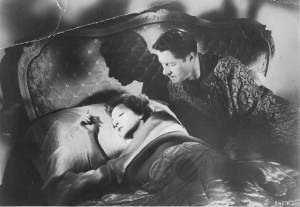
How to keep moving in the same way that this column must travel — from La Jolla, to Richard Corliss in Cannes, to Film Comment in New York, to wherever you happen to be reading it? Now that TV Guide generally has to take the place of Pariscope, [London’s] Time Out, the New York newspapers, shall I write about the breathneck beginning of Sirk’s SLEEP, MY LOVE, the parallels with Preminger’s WHIRLPOOL,a wonderful exchange between Don Ameche and Hazel Brooks (”Doesn’t sound like my girl…” “You have a lot of girls. This is one of them”), or scenes that unexpectedly and mysteriously take place in the rain? Read more
From the Chicago Reader (January 20, 1995). — J.R.
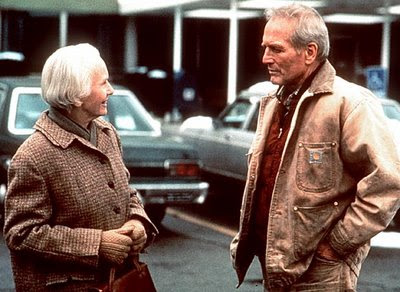
NOBODY’S FOOL
Rating *** A must see
Directed and written by Robert Benton
With Paul Newman, Jessica Tandy,
Bruce Willis, Melanie Griffith,
Dylan Walsh, Pruitt Taylor Vince,
Gene Saks, Josef Sommer,
and Philip Seymour Hoffman.
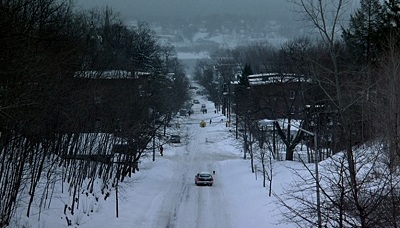
Since most Hollywood movies of the 90s offer unabashed fantasies, the hero’s success has become something of a given. Regardless of the odds against him (seldom her), one feels sure that he’ll emerge unscathed — triumphant over his enemies, often rolling in wealth, and with the lady of his choice at his side. Of course people often go to movies in order to bask in a universe of wish fulfillment, and most of our contemporary films are roughly akin to the fantasies of opulence and goodwill offered to Depression audiences 60-odd years ago (though it’s hard to think of many recent parallels, apart from a few TV docudramas, to Warner Brothers’ gritty, socially conscious melodramas of that period).
So when a Hollywood movie about failure comes along, it has the unexpected ring of authenticity: for all its sentimental safety nets, Nobody’s Fool looks and feels a good deal like much of U.S. life as it’s currently being lived: virtually everyone qualifies as an ornery fuck-up, complains incessantly about his or her lot, and sees no practical way out of life’s morass of everyday complications. Read more
Written as a column for the May-June 1977 Film Comment. Some of the details here are dated, I think, in an interesting manner — especially the discussion of “Disco-Vision”. I should add that the only version of MIKEY AND NICKY that had been released in the mid-70s was an unfinished edit by Elaine May that the studio had taken away from her and put out without her consent. -– J.R.
***
The world had gone crazy, said the crazy man in his cell. What was nutty was that the movie folk were trafficking in illusions in the real world but the real world thought that its reality could only be found in the illusions. Two sets of maniacs.
– Walker Percy, Lancelot
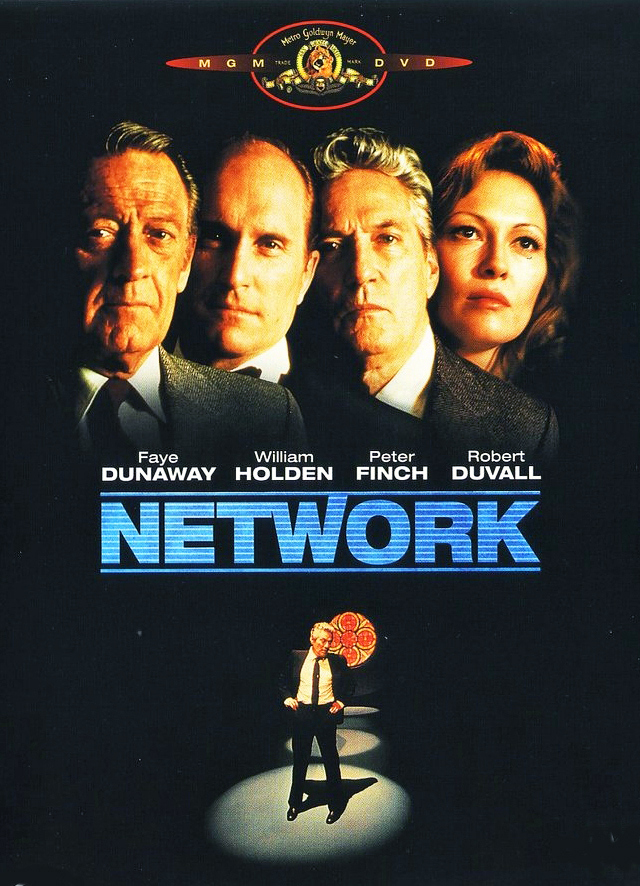
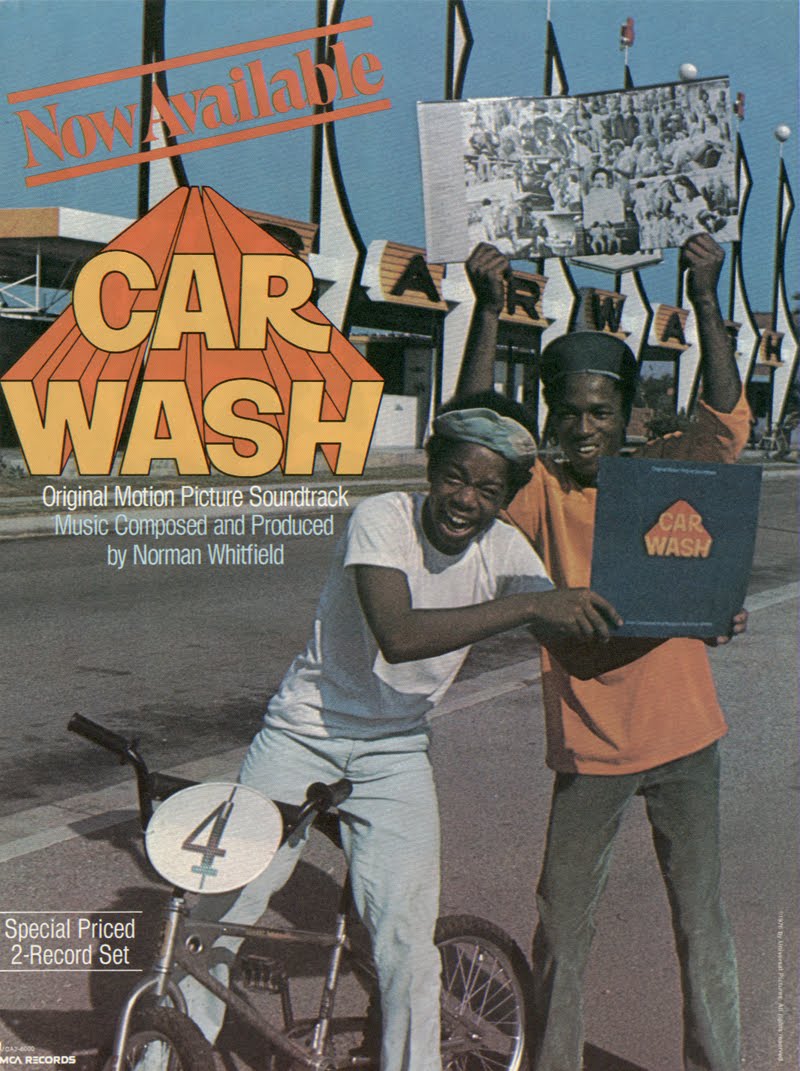
Compare the ads for NETWORK and CARWASH. The former conjures up a hot exposé, a “real” behind-the-scenes glimpse of What Goes On behind the moneyed façade of big-time broadcasting; the latter suggests a frivolous, “irresponsible” fantasy to be seen for fun, not edification. Moving back to the U.S. after over seven years abroad — a sudden shift from reflective Paris chrome and ashen London gray to La Jolla baby-blue, from cinema to some medieval state of pre-cinema or post-Cinema — the foreignness and familiarity of the country both seem epitomized by the absurdity of that cockeyed distinction, which virtually gets it all backwards. Read more
From Monthly Film Bulletin, February 1977. — J.R.
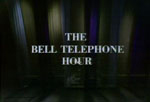
U.S.A., 1968
Director: (not credited)
Dist–TCB. p.c–Drew Associates. For the Bell System. p–Robert Drew, Mike Jackson. assoc. p–Harry Moses. p. co-ordinator–Jean Swain. sc–(not credited). ph–Abbot Mills, Juliana Wang, Ralph Weisinger. asst. ph–Bill Hanson. In color. ed–Naomi Mankbwitz. m.d–Donald Voorhees. songs–fragments of “When the Saints Go Marching fn”, “Hello Dolly”, “Rose”, “The Kinda Love Song” by George Weiss, performed by Louis Armstrong; “Con Alma”, “Swing Low, Sweet Cadillac” performed by Dizzy Gillespie; “I’m in a Dancing Mood” performed by Dave Brubeck; “Light in the Wilderness” by Dave Brubeck; “Forest Flower”, performed by Charles Lloyd. sd–Dave Blumgart, Stan Agol. narrator–Don Morrow. with–Louis Armstrotrg, Dave Brubeck, Paul Desmond, Joe Morello, Eugene Wright, Iola Brubeck, Matthew Brubeck, Michael Brubeck, Catherine Brubeck, Christopher Brubeck, David Brubeck, Darius Brubeck, Charles Lloyd, Keith Jarrett, Dizzy Gillespie, James Moody, George Weiss. 1,921 ft. 53 mins. (16 mm.).
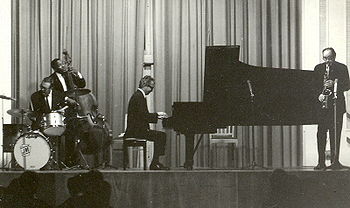
Interviews with Louis Armstrong, Dizzy Gillespie, Dave Brubeck and Charles Lloyd, interspersed with snatches of their music in rehearsal or performance.
An appalling example of how appreciation of jazz can be summarily crushed in the process of supposedly trying to promote the music, this American TV documentary follows the fatal course of rarely letting the music speak for itself for more than a few bars at a time, while encouraging each of the four musicians to pontificate at length about his life and art. Read more







